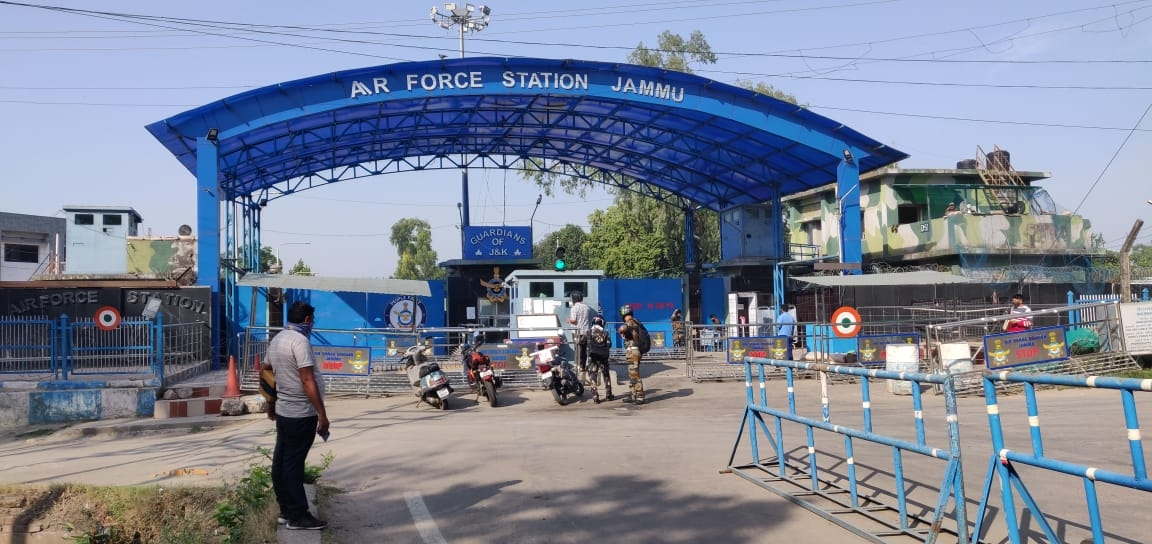India is unlikely to be provoked by the cross-border drone strike on the Jammu air force base, as there is nothing to suggest so far that Islamabad had officially sanctioned the operation.
People with knowledge of the incident told IndiaNarrative.com that the drone strike could have been ordered by grassroots tanzeems and commanders, and was likely to be a local level outburst to Sunday’s blast that seemingly targeted Jaish-e-Mohammad (JEM) chief, Masood Azhar.
There have been media reports that on Sunday, an explosion rocked a military hospital in Rawalpindi where ailing chief of Jaish-e-Mohammad (JEM) Masood Azhar, designated as an international terrorist, was undergoing treatment. However, there was no official confirmation of the incident or reports of any casualties that may have resulted on account of the blast.
A human rights worker from Quetta, Ahsan Ullah MiaKhail posted a video on Twitter, showing thick smoke rising from the hospital. "Huge #blast at Military Hospital in #Rawalpindi, #Pakistan. 10 injured shifted to emergency. Jaish-E-Mohammad Chief Maulana Masood Azhar is admitted here. Completely Media blackout by Army. Media asked Strictly not to cover this story," he wrote on Twitter.
Huge #blast at Military Hospital in #Rawalpindi, #Pakistan. 10 injured shifted to emergency.
Jaish-E-Mohammad Chief Maulana Masood Azahar is admitted here.Completely Media blackout by Army. Media asked Strictly not to cover this story@a_siab @nidkirm @GulBukhari @mazdaki pic.twitter.com/sTIYrJ7sAn— Ahsan Ullah MiaKhail (@AhsanUlMiakhail) June 23, 2019
Though there have been murmurs in Pakistan that “foreign intelligence” services, a euphemism for an Indian hand, were behind the attack, Islamabad has decided not to blow up the incident. “Usually there would have been plenty of finger pointing at India, naming of Indian agents, with the public display of the perpetrators Indian connections including passports on previous occasions of this nature. None of that happened this time, showing that the Pakistani government is probably not interested in using this incident to sour ties with India.” On the contrary an individual by the name of David Peter, hardly an India sounding name, is said to have been arrested in connection with the incident, insiders said.
People following the event, who did not wish to named said that the Pakistani military, especially the army chief Qamar Javed Bajwa is personally invested in carrying forward the budding effort to start normalisation of ties with India, following the revival of the 2003 ceasefire agreement between the two countries in February this year.
That explains why Pakistan has not attempted to thwart Prime Minister Narendra Modi’s bold initiative to offer revival of the Jammu and Kashmir assembly during talks with mainstream Kashmir leaders last week. “Usually, any such attempt would have triggered cross-border chatter with Kashmiri leaders discouraging to positively respond to New Delhi’s overtures. But none of that happened ahead of the PM’s crucial meeting,” the insider said, signalling that it is unlikely that military general headquarters in Rawalpindi given up on building fresh momentum after the ceasefire revival.

Analysts say, that notwithstanding the impediment triggered by the drone attack, PM Modi’s offer of restoration of the J and K’s statehood is expected to strengthen Bajwa’s hand and dampen the resistance among radical elements inside Pakistan towards normalisation of ties with India.
It is now not inconceivable that a likely normalisation process between India and Pakistan will move on the commercial track. First, the cross-LoC trade could resume as a confidence building measure, followed by greater volume of trading across the Wagah border with Punjab. The trade bodies in Pakistan and India are in any case keen to restart commercial activity, but have so far been restrained on political grounds.
The continuation of a peace-track with Pakistan also suits India which perceives, not Pakistan, but China as its main security threat. By making the offer of restoring statehood in Jammu and Kashmir, India may have well introduced a powerful vector to avoid a two-front war. With tensions in Ladakh still not fully abated, and China continuing with its infra development in Tibet, the danger of Pakistan opening a second front against India would be inimical to India’s interests. But by becalming the LoC and the IB, buttressed by opening of an economic engagement with Pakistan, the chances of a two-front war, to that extent, have been pushed back, yielding India a significant security bonanza. It is therefore unlikely that India will be provoked into retaliating against the drone strike and risk upsetting its more fundamental big-picture interests.
Also Read:
Jammu drone attack: NIA takes over probe; unauthorised drones being seized
Meeting with PM: J&K parties accept August-2019 changes as fait accompli




















